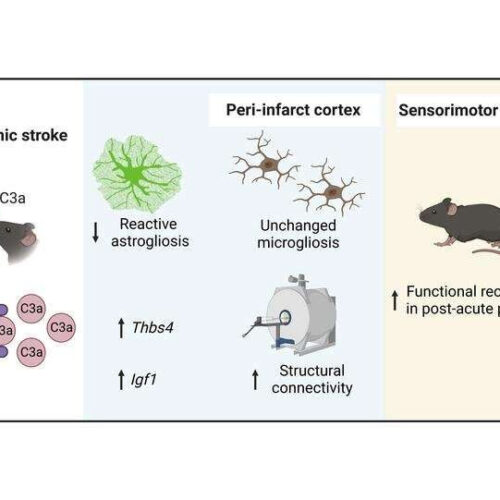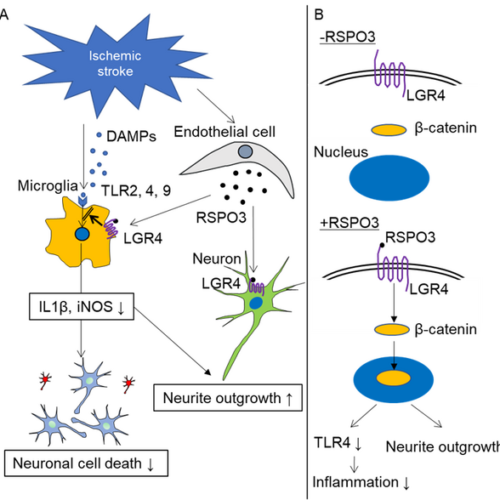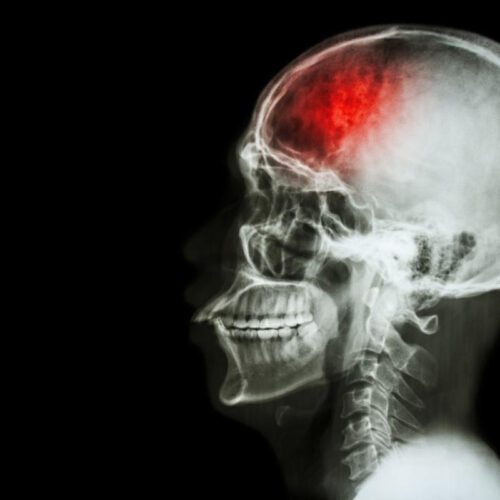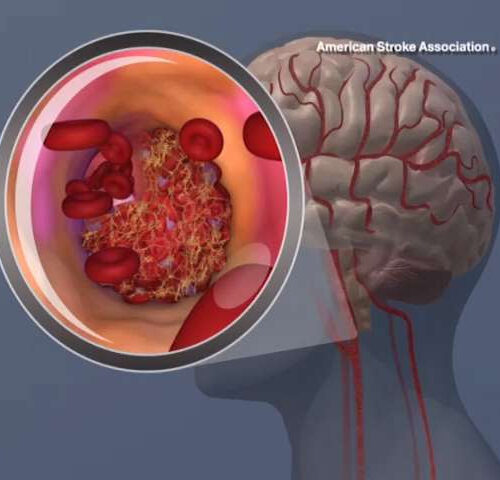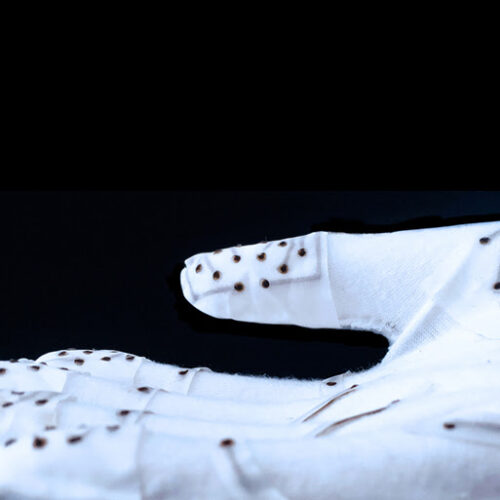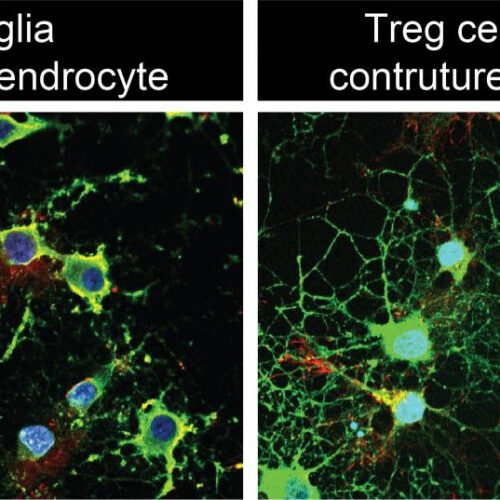by University of Gothenburg Graphical abstract. Credit: Journal of Clinical Investigation (2023). DOI: 10.1172/JCI162253 An effective treatment for most stroke victims—even those who, today, are unable to gain access to care within the first few hours. This is the goal of an experimental method that has been tested with great success in an international study headed by the...
Tag: <span>stroke recovery</span>
A potential pathway to improved stroke recovery
OSAKA UNIVERSITY IMAGE: ADMINISTERED RSPO3 AND RSPO3 SECRETED BY ENDOTHELIAL CELLS PROMOTE NEURITE OUTGROWTH AND NEUROPROTECTION BY SUPPRESSING TLR2, TLR4, AND TLR9-INDUCED INFLAMMATION IN MICROGLIA AND BY ACTING DIRECTLY ON NEURONS (A). RSPO3 STIMULATES NUCLEAR TRANSLOCATION OF Β-CATENIN, RESULTING IN THE DOWNREGULATION OF TLR4 EXPRESSION AND PROMOTION OF NEURITE OUTGROWTH (B). CREDIT: STROKE IN PRESS...
Earpiece zaps nerves to rewire the brain and speed stroke recovery
By Michael Irving April 19, 2023 A new wearable device can stimulate the vagus nerve to help speed up patient rehabilitation after a stroke Depositphotos Engineers at ETH Zurich have developed a wearable system that can help patients regain movement and mobility after a stroke. The system consists of a motion-sensing watch and an earpiece...
Naturally occurring protein to block inflammatory response improved stroke recovery in mice
by American Heart Association A blood clot forming in the carotid artery. Credit: copyright American Heart Association A naturally occurring protein that blocks an inflammatory immune response was associated with better stroke recovery in a study conducted in mice, according to preliminary research to be presented at the American Heart Association’s Vascular Discovery: From Genes to...
Sensing Glove to Aid in Stroke Recovery
AUGUST 10TH, 2021, CONN HASTINGS Researchers at MIT created a sensing glove that can detect small pressure changes along its surface when a wearer grasps something. The glove is threaded with tiny pressure sensors, which are studded with micropillars that create changes in an electrical signal when they bend and deform. This provides an incredibly...
Novel immunotherapy boosts long-term stroke recovery in mice
UNIVERSITY OF PITTSBURGH IMAGE: THESE IMAGES SHOW HOW REGULATORY T CELLS (TREG CELLS) BOOST THE ABILITY OF MICROGLIA CELLS TO PROMOTE THE REGENERATION OF THE BRAIN’S WHITE MATTER (RIGHT), COMPARED TO A SAMPLE NOT TREATED WITH TREG CELLS (LEFT). CREDIT: XIAOMING HU/UNIVERSITY OF PITTSBURGH PITTSBURGH, May 19, 2021 – Specialized immune cells that accumulate in...
Gut microbes may improve stroke recovery
UNIVERSITY OF KENTUCKY LEXINGTON, Ky. (Jan. 8, 2020) — New research shows that the microorganisms in our gut could help protect brain cells from damage caused by inflammation after a stroke. The study, published in the Journal of Neuroscience by researchers from the Ludwig Maximilian University of Munich, University of Kentucky’s College of Medicine and...
Harnessing the microbiome to improve stroke recovery
by Society for Neuroscience Supplementing the body’s short chain fatty acids can improve stroke recovery, according to research in mice recently published in JNeurosci. Short chain fatty acid supplementation may be a non-invasive addition to stroke rehabilitation therapies. The gut microbiome influences brain health, including how the brain recovers from stroke. Short chain fatty acids,...
ReWalk Exo-Suit Gets Green Light in U.S., Europe to Aid Stroke Recovery
ReWalk Robotics, a company with offices in Marlborough, Massachusetts and Yokneam Ilit, Israel, won FDA approval and a CE mark for its ReStore Exo-Suit, clearing the device for sale in the United States and EU countries. The ReStore Exo-Suit had its beginnings at Harvard’s Wyss Institute for Biologically Inspired Engineering. It is made of a soft wrap that is placed around a...
Immune discovery points to therapies to improve stroke recovery
A blood clot forming in the carotid artery. Having a stroke damages immune cells as well as affecting the brain, research has found. The findings help explain why patients have a greater risk of catching life-threatening infections, such as pneumonia, after having a stroke. Therapies that boost survival of the affected immune cells or compensate...

